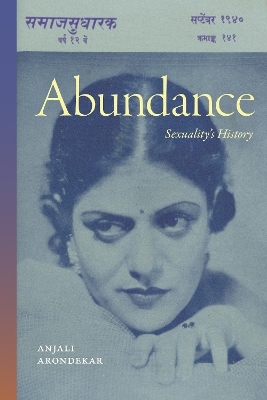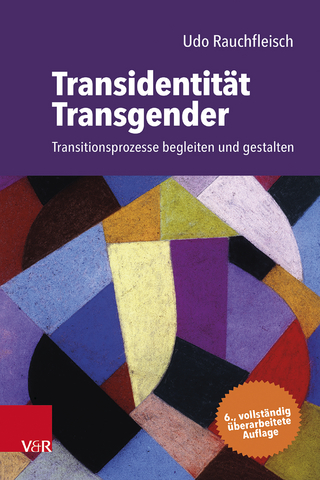
Abundance
Sexuality’s History
Seiten
2023
Duke University Press (Verlag)
978-1-4780-1990-9 (ISBN)
Duke University Press (Verlag)
978-1-4780-1990-9 (ISBN)
Anjali Arondekar refuses the historical common sense that archival loss is foundational to a subaltern history of sexuality, by theorizing the radical abundance of sexuality through the archives of a caste-oppressed Devadasi collective in South Asia.
In Abundance, Anjali Arondekar refuses the historical common sense that archival loss is foundational to a subaltern history of sexuality, and that the deficit of our minoritized pasts can be redeemed through acquisitions of lost pasts. Instead, Arondekar theorizes the radical abundance of sexuality through the archives of the Gomantak Maratha Samaj—a caste-oppressed devadasi collective in South Asia—that are plentiful and quotidian, imaginative and ordinary. For Arondekar, abundance is inextricably linked to the histories of subordinated groups in ways that challenge narratives of their constant devaluation. Summoning abundance over loss upends settled genealogies of historical recuperation and representation and works against the imperative to fix sexuality within wider structures of vulnerability, damage, and precarity. Multigeneric and multilingual, transregional and historically supple, Abundance centers sexuality within area, post/colonial, and anti/caste histories.
In Abundance, Anjali Arondekar refuses the historical common sense that archival loss is foundational to a subaltern history of sexuality, and that the deficit of our minoritized pasts can be redeemed through acquisitions of lost pasts. Instead, Arondekar theorizes the radical abundance of sexuality through the archives of the Gomantak Maratha Samaj—a caste-oppressed devadasi collective in South Asia—that are plentiful and quotidian, imaginative and ordinary. For Arondekar, abundance is inextricably linked to the histories of subordinated groups in ways that challenge narratives of their constant devaluation. Summoning abundance over loss upends settled genealogies of historical recuperation and representation and works against the imperative to fix sexuality within wider structures of vulnerability, damage, and precarity. Multigeneric and multilingual, transregional and historically supple, Abundance centers sexuality within area, post/colonial, and anti/caste histories.
Anjali Arondekar is Professor of Feminist Studies at the University of California, Santa Cruz, and author of For the Record: On Sexuality and the Colonial Archive in India, also published by Duke University Press.
Introduction: Make.Believe.Sexuality's Subjects 1
1. In the Absence of Reliable Ghosts: Archives 33
2. A History I Am Not Writing: Sexuality's Exemplarity 63
3. Itinerant Sex: Geopolitics as Critique 90
Coda. I Am Not Your Data. Caste, Sexuality, Protest 112
Acknowledgments 129
Primary Sources 135
Secondary Sources 139
Index 163
| Erscheinungsdatum | 21.07.2023 |
|---|---|
| Reihe/Serie | Theory Q |
| Zusatzinfo | 14 illustrations |
| Verlagsort | North Carolina |
| Sprache | englisch |
| Maße | 152 x 229 mm |
| Gewicht | 272 g |
| Themenwelt | Geisteswissenschaften ► Psychologie ► Sexualität / Partnerschaft |
| Sozialwissenschaften ► Soziologie ► Gender Studies | |
| ISBN-10 | 1-4780-1990-5 / 1478019905 |
| ISBN-13 | 978-1-4780-1990-9 / 9781478019909 |
| Zustand | Neuware |
| Haben Sie eine Frage zum Produkt? |
Mehr entdecken
aus dem Bereich
aus dem Bereich
Transitionsprozesse begleiten und gestalten
Buch | Softcover (2024)
Vandenhoeck & Ruprecht (Verlag)
CHF 48,95
Wege aus dem Chemsex-Konsum bei MSM
Buch | Softcover (2022)
Psychiatrie Verlag
CHF 34,95
die wichtigsten Konzepte, Tools und Interventionen
Buch | Softcover (2023)
Vandenhoeck & Ruprecht (Verlag)
CHF 34,95


